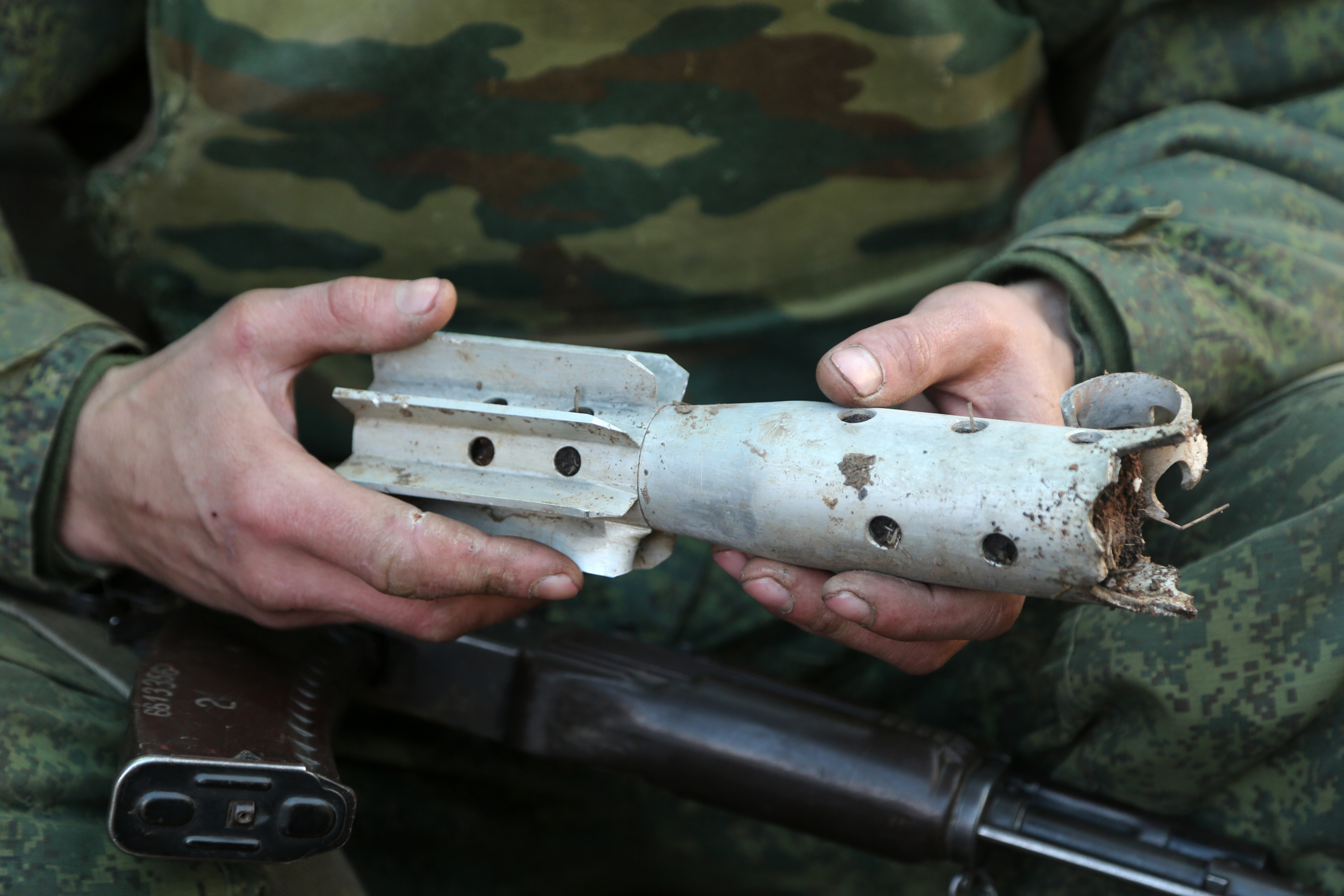President Joe Biden said Friday he's “convinced” that Russian President Vladimir Putin has decided to launch a further invasion in Ukraine, including an assault on its capital, Kyiv, as tensions spiked along the militarized border with attacks that the West called “false-flag” operations meant to establish a pretext for invasion.
Shells struck by the hundreds along the tense front lines in eastern Ukraine, drones monitoring a fragile cease-fire lost their way when the GPS signal they rely on was jammed, and then the cellphone network went dark.
In a sliver of land where pro-Russian separatists have battled for years against Ukrainian government forces, a group of international monitors tasked with keeping the peace reported more than 500 explosions in the 24 hours ending Thursday midday, around four times as many as an average day over the past month.
After weeks of saying the U.S. wasn’t sure if Putin had made the final decision to launch a widespread invasion, Biden said that assessment had changed, citing the Americans' “significant intelligence capability.”
We've got the news you need to know to start your day. Sign up for the First & 4Most morning newsletter — delivered to your inbox daily. Sign up here.
“As of this moment I’m convinced he’s made the decision,” Biden said. “We have reason to believe that.” He reiterated that it could occur in the “coming days.”
As the world warily watches Russian troops massing near Ukraine's borders for signs they're preparing to invade, Western officials have warned that the spark could come from the volatile east: Repeatedly in recent weeks, the U.S. has said the simmering conflict there could provide cover or an excuse for Russia to roll across the border.
Biden reiterated his threat of massive economic and diplomatic sanctions against Russia if it does invade, and pressed Putin to rethink his course of action. He said the U.S. and its Western allies were more united than ever to ensure Russia pays a price for the invasion.
The number of explosions eased as the day went on, but by then the village of Stanytsia had already suffered more than its share. One shell crashed into a kindergarten, blasting a hole in the wall that sent soccer balls flying off the classroom shelves just as the school day started. Others blasted craters into the schoolyard and shattered windows of nearby homes.
Russia-Ukraine Crisis Coverage:
“We heard the sound of broken glass. The children were very scared. Some kids started crying immediately, and the explosions continued for the next 20 minutes," said Olena Yaryna, the school director.
At Valentyna Melnychenko's nearby home, the explosions filled her living room and hall with smoke.
“I switched off the TV, and there were seven more shellings and then it stopped,” she said as she surveyed the damage outside, her hair covered in a bright pink scarf that contrasted with the gray debris behind her.
Three people were wounded and half the village lost power. Oleksandr Pavliuk, a Ukrainian army commander, said the explosions were intended to provoke a response and ultimately a counter-response, echoing the warnings from the United States. Russia denies any plans to attack.
“Our task is to control this abnormal situation in order to avoid a pretext for escalation,” Ukrainian Defense Minister Oleksii Reznikov said Friday.
Monitors from the Organization for Security and Cooperation in Europe have been in place in the Donetsk and Luhansk regions since 2014 to try and maintain the cease-fire. It’s never been easy, but that task was made harder this week as they found their access repeatedly blocked.
“The gradual fraying of the cease-fire ... has regrettably accelerated,” Yaşar Halit Çevik, the mission's chief monitor, told the U.N. Security Council on Thursday. He said daily cease-fire violations had doubled since the beginning of the year
In addition to the explosions, the organization recorded nearly 600 cease-fire violations over the course of a day, more than double the average for the past month. And three of the organization's small surveillance drones went astray after the GPS signal was jammed; a fourth couldn't make it off the ground without a signal.
Electronic interference went further overnight, when the cellphone network went down in Luhansk for hours, for the second night in a row, according to an Associated Press journalist working in the area.
And Stanytsia Luhanska was struck yet again as night fell.



